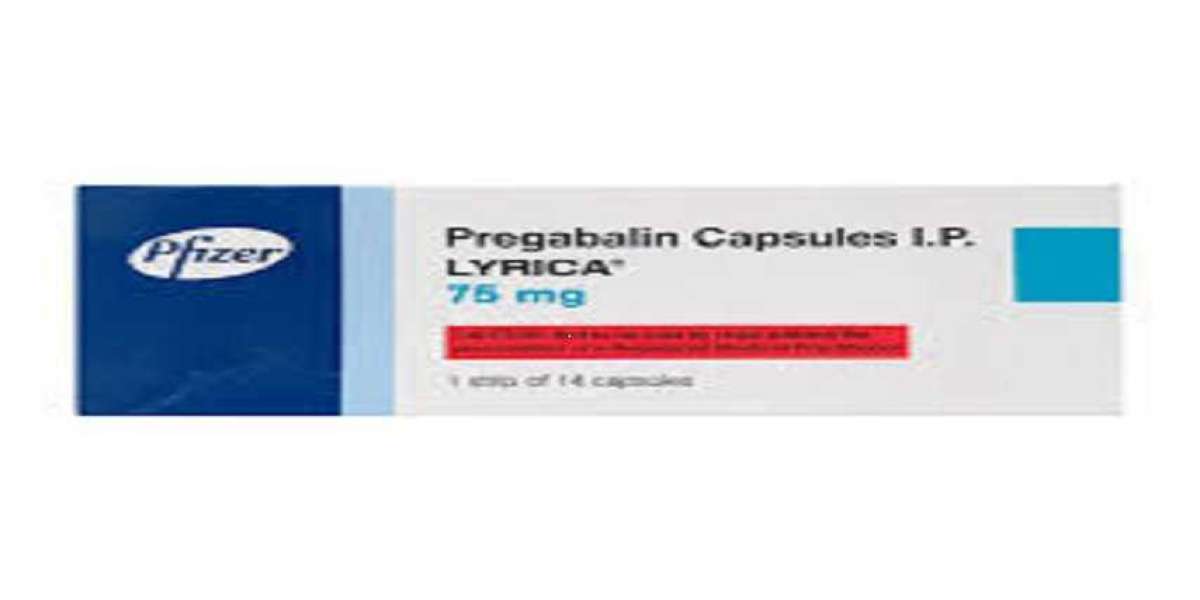Introduction
Diabetic peripheral neuropathy (DPN) is a common complication of diabetes, characterized by nerve damage, primarily in the extremities such as the feet and hands. This condition can lead to pain, numbness, and a variety of other symptoms that significantly impact the quality of life. Lyrica (pregabalin) 75 mg is a medication commonly prescribed for managing the pain associated with DPN. This essay provides a comprehensive guide on how to take Lyrica 75 mg for diabetic peripheral neuropathy, covering its mechanism of action, dosage guidelines, administration tips, potential side effects, and considerations for optimizing treatment outcomes.
Understanding Diabetic Peripheral Neuropathy
Diabetic peripheral neuropathy results from prolonged high blood sugar levels, which cause damage to the nerves. This nerve damage can manifest in various symptoms including:
- Sharp, shooting, or burning pain
- Tingling or numbness
- Increased sensitivity to touch
- Muscle weakness
- Loss of balance and coordination
Managing DPN often requires a multifaceted approach, combining blood sugar control, lifestyle modifications, and pharmacotherapy. Among the pharmacological options, Lyrica has proven to be effective in alleviating neuropathic pain.
Mechanism of Action of Lyrica (Pregabalin)
Lyrica, also known by its generic name pregabalin, is an anticonvulsant and neuropathic pain agent. It works by binding to the alpha-2-delta subunit of voltage-gated calcium channels in the central nervous system. This binding reduces the release of neurotransmitters such as glutamate, norepinephrine, and substance P, which are involved in pain signaling and transmission. By modulating these neurotransmitters, Lyrica helps to decrease the abnormal neuronal excitability associated with neuropathic pain.
Dosage Guidelines for Lyrica 75 mg
The appropriate dosage of Lyrica 75 mg Capsule for managing DPN pain varies depending on individual patient factors, including the severity of symptoms, renal function, and response to treatment. However, general guidelines can help ensure safe and effective use.
Initial Dosage
For most patients, the initial recommended dose of Lyrica for DPN is 75 mg taken twice daily. This starting dose allows for the assessment of the medication's effectiveness and tolerability.
Titration and Maintenance
Depending on the patient’s response and tolerability, the dosage may be increased. The dose can be increased to 150 mg taken twice daily within one week based on efficacy and tolerability. For patients who require further pain relief, the dosage may be increased to a maximum of 300 mg twice daily. However, higher doses are associated with an increased risk of side effects.
Renal Impairment Considerations
Since Lyrica is primarily excreted by the kidneys, dosage adjustments are necessary for patients with renal impairment. The dosing regimen should be individualized based on the patient’s renal function, as determined by creatinine clearance (CrCl) levels.
Administration Tips
To optimize the effectiveness of Lyrica and minimize potential side effects, it is important to follow certain administration guidelines.
Consistency in Timing
Lyrica should be taken at the same times each day to maintain consistent blood levels of the medication. This helps in achieving a steady therapeutic effect and reduces the risk of breakthrough pain.
Swallowing the Capsules
Lyrica capsules should be swallowed whole with water and should not be crushed, chewed, or split. This ensures proper release and absorption of the medication.
Food Considerations
Lyrica can be taken with or without food. However, taking it with food may help reduce potential gastrointestinal side effects, such as nausea.
Adherence to Prescribed Dosage
Patients should adhere strictly to the prescribed dosage regimen. Taking more than the prescribed dose does not enhance pain relief and may increase the risk of adverse effects.
Potential Side Effects
Like all medications, Lyrica can cause side effects. It is important for patients to be aware of these potential side effects and to consult their healthcare provider if they experience any concerning symptoms.
Common Side Effects
- Dizziness
- Drowsiness
- Dry mouth
- Blurred vision
- Weight gain
- Edema (swelling)
Serious Side Effects
Although rare, some patients may experience serious side effects that require immediate medical attention, including:
- Allergic reactions (rash, itching, swelling, severe dizziness, trouble breathing)
- Suicidal thoughts or behavior
- Severe muscle pain or weakness
- Unusual bleeding or bruising
Managing Side Effects
Patients experiencing common side effects may find relief by adjusting their routine, such as taking the medication with food to reduce nausea or ensuring adequate hydration to alleviate dry mouth. For serious side effects, immediate consultation with a healthcare provider is essential.
Optimizing Treatment Outcomes
To maximize the benefits of Lyrica in managing DPN pain, patients should consider the following strategies:
Regular Monitoring
Regular follow-up appointments with a healthcare provider are crucial to monitor the effectiveness of the treatment and make any necessary adjustments to the dosage or regimen.
Blood Sugar Control
Effective management of blood sugar levels is fundamental in preventing further nerve damage and enhancing the overall treatment outcome for DPN.
Lifestyle Modifications
Incorporating lifestyle changes such as maintaining a healthy diet, engaging in regular physical activity, and avoiding smoking and excessive alcohol consumption can significantly contribute to the management of DPN.
Patient Education
Patients should be well-informed about their condition and the role of Lyrica in their treatment plan. Understanding the importance of adherence to the prescribed regimen and recognizing potential side effects can empower patients to actively participate in their care.
Visite : https://www.pills4cure.com/sitemap.xml
Conclusion
Managing diabetic peripheral neuropathy requires a comprehensive approach that includes pharmacotherapy, lifestyle modifications, and regular monitoring. Lyrica 75 mg is effective in alleviating the pain associated with DPN. By understanding its mechanism of action, adhering to the recommended dosage guidelines, and being aware of potential side effects, patients can optimize their treatment outcomes and improve their quality of life. Regular consultation with healthcare providers and a commitment to overall diabetes management are key components in the successful management of DPN with Lyrica.







